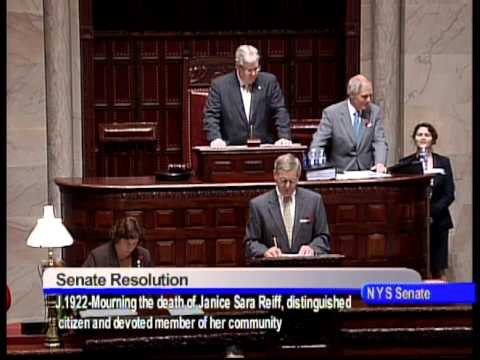
Sen. Takes Foreclosure In Own Hands
Editorial feature in The Queens Chronicle
By Matt Hampton, Assistant Editor
Politicians all over New York City have been working hard to help residents deal with the effects of the foreclosure crisis, but only one can claim to have walked a mile in their shoes. At a press conference last Friday, state Sen. Shirley Huntley revealed that she deliberately stopped paying her mortgage in November in an attempt to understand the ordeal of foreclosure that thousands of Queens residents are experiencing.
“The best way to find out the truth about a situation is to go in and find out for yourself,” she said. Huntley, who represents Jamaica, also lives in the area that has been recognized as “ground zero” in New York City concerning the foreclosure crisis. “The bottom line is, unless we do something about the foreclosures, the banks and the predatory lenders, this neighborhood will be gone,” Huntley added.
The senator was concerned about the looming foreclosure crisis throughout much of 2007, and had been looking for many months to find a way to properly illustrate the difficulty that many people have dealing with nonpayment of their mortgage.
In Huntley’s case, her home loan through Wells Fargo was not an example of an adjustable-rate mortgage, or aggressive lending tactics — two of the biggest factors that contribute to foreclosures — but she still had an extremely difficult time communicating with people once her payments were classified as delinquent.
She also maintained that litigation was filed before she was informed, by mail, that her house was in danger of foreclosure. “They sent my regular statement every month, which obviously kept going up,” she said. “But what I was waiting for was a call or a letter to tell me if I didn’t pay up, I was going to be foreclosed on.”
Wells Fargo, through spokesman Jason Menke, said that the bank indeed reached out to Huntley, and that their policies dictate that parties in danger are always contacted.
“We work hard to keep customers in their homes, whenever possible, when they experience financial difficulties,” Menke said in an e-mail.“Wells Fargo proactively contacts delinquent customers in an effort to work with them on potential solutions based on their personal financial circumstances. ... Our records indicate that in the senator’s situation, our policies were followed. Numerous attempts were made to contact the Huntleys by both telephone and mail in the months leading up to the actual notice of foreclosure.”
Huntley, however, disagrees. “When all of this happened, after they served me, the (notice of foreclosure) letter came later,” she said. “They were not nice, they were not interested in helping me save my house.”
Her goal with the action is to advocate her solution: a one-year moratorium on home foreclosures. A 12-month period would allow people in financial turmoil an opportunity to sort out their affairs while not fearing the loss of their homes.
One year is a considerably more drastic measure than those that have been put forward by the state and federal governments, and by any current presidential candidate.
Huntley’s lawyer, Howard Birnbach, said that her plight was a great indicator that the system of payment and litigation in foreclosure cases is fundamentally flawed.
“If a senator with her level of sophistication and knowledge ... found it impossible to get another human being on the phone, what chance does the average person have?” he asked. “This is the type of problem that only a wealthy person can address early on.”
Huntley admitted that she had stopped paying her mortgage twice in the last year in an attempt to go through with a plan that her husband, Herb, was uncomfortable with, but had gotten cold feet on both occasions.
She was finally convinced to go through with the ploy when two constituents, a pair of neighborhood mothers and friends who shared a home with three children, lost their house because they were fired from their jobs.
“I came outside my office one day, and they were standing on my sidewalk with duffel bags, and three children,” Huntley said. “We took them in and let them sleep on the floor in my office for two nights while we found them a new place in Brooklyn.”
After seeing the plight of those two single parents, she knew that she wanted to put her own home on the line. When asked if she planned to pay her outstanding balance in full before she officially defaulted on her home, Huntley was coy.
“I’m going to play with them for a while,” she said, “the way they played with me.”


